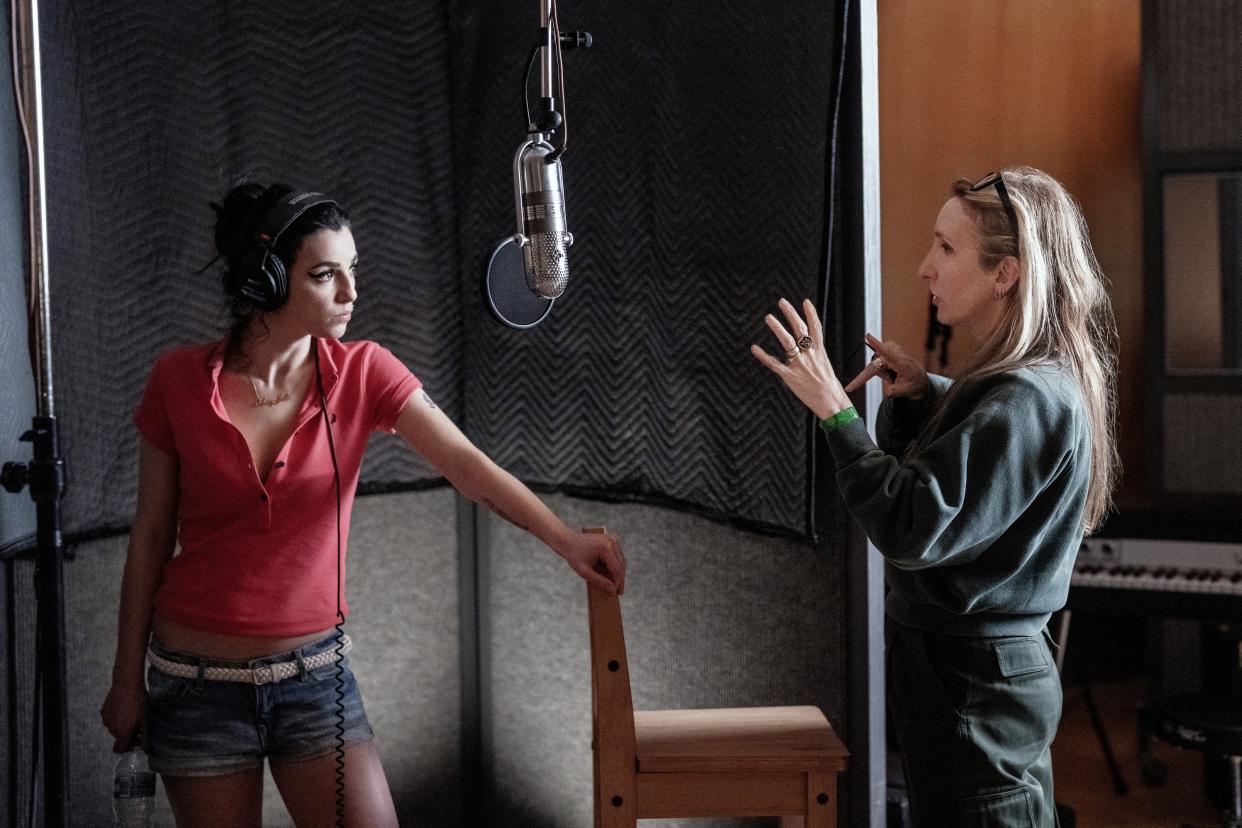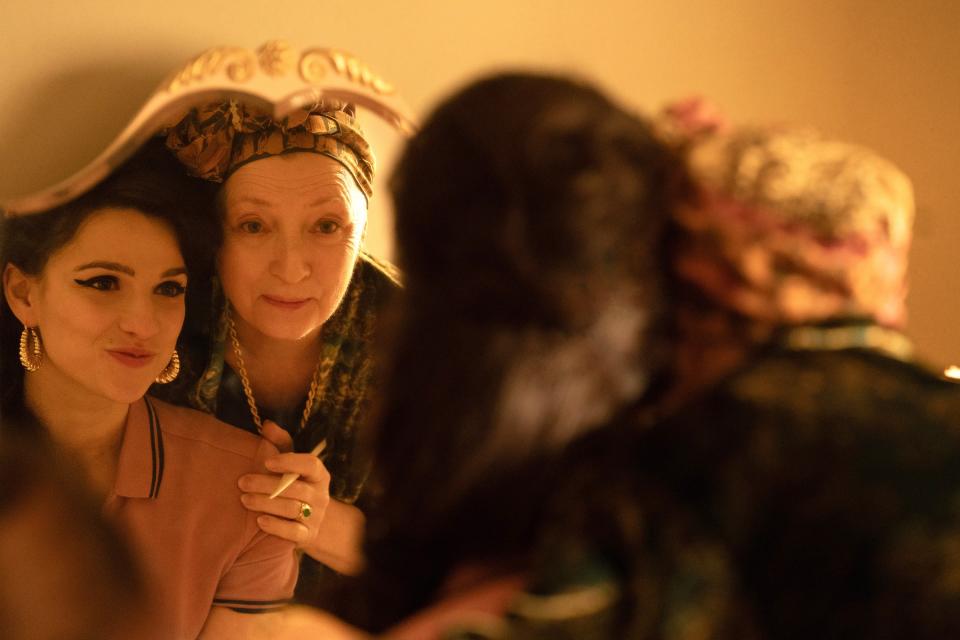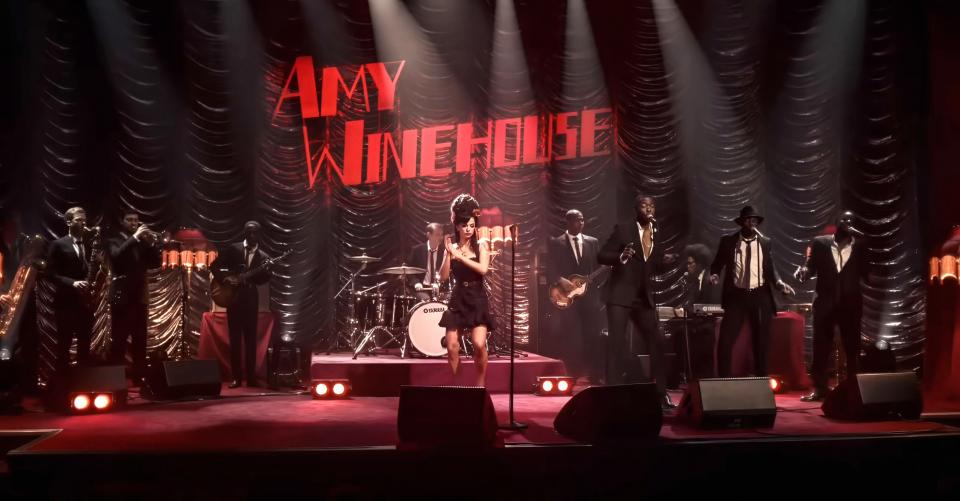Marisa Abela: I Would Have Had to ‘Protect’ Amy Winehouse’s Legacy from a Male Director

- Oops!Something went wrong.Please try again later.
- Oops!Something went wrong.Please try again later.
Marisa Abela knew that “Back to Black” needed women in key production roles. Why? Because Abela was aware that Amy Winehouse’s legacy needed to be a “genuine portrayal” without gendered judgment.
Directed by Sam Taylor-Johnson, “Back to Black” centers on Winehouse’s musical career, culminating in the Grammy-winning album that was her final release before her death at age 27 in 2011. Winehouse’s relationship with her ex-husband Blake Fielder-Civil is positioned as the direct inspiration for “Back to Black,” and Abela was determined not to have a “2024 view” of Winehouse and Fielder-Civil’s tumultuous courtship and subsequent divorce.
More from IndieWire
“It’s interesting because the thing about being an actor instead of being a writer or a musician is that Amy existed. She’s a real person, and if I decided to put my sort of 2024 view of how women should relate to their partners on top of it, I would not be doing my job as an actor,” Abela told IndieWire. “I would be interpreting something in a way that is not a genuine portrayal of Amy.”
She added, “If this was a fictional story and someone presented me this script and it was up to me how I played those moments, it might be different. But it isn’t. If we’re saying we’re going to honor Amy, judging her through her relationships to the men in her life is starting from the wrong place.”
In fact, Abela is convinced that Taylor-Johnson’s dedication to Winehouse is what maintained the unbiased portrayal of the singer/songwriter, something that perhaps a male director would not understand or relate to.
“I think that it was very helpful that almost every single head of department on our film is a woman. You have a female director, a female DoP, female costume, female hair and makeup, female set designers. It was crazy. And what that meant was I didn’t feel protective over Amy and [have to deal with] having a male director say to me, ‘She’s just fawning over [Blake],'” Abela said. “I feel I would have to protect Amy from his view of her. But it was just a room full of women. There was so much protection around Amy as a woman in the space. You felt that you could play the reality of that scene rather than trying to modernize it to save her legacy. You just played it for what it was.”

Abela credited director Taylor-Johnson for allowing her to be fully immersed in the “intense” process of becoming Winehouse for the screen.
“The thing that was most important to me was this indescribable intensity and power and magic that [Amy] had. And if I could get somewhere close to what that was and what that felt like and where that came from, then that would be a film that was worth making about someone that we already know really well,” Abela said. “And it just so happened that Sam felt the same way, that that was the most important thing about telling the story.”
In fact, Abela recalled how Taylor-Johnson led a completely unprecedented audition that reflected a “gentle” respect for both Winehouse’s legacy and Abela’s own artistic process.
“I never wanted to trick anyone into thinking I was an amazing singer or that I looked exactly like Amy or any of these things. My version of this performance was always going to be from the inside out. The most important thing is that there’s this feeling of Amy,” Abela said. “I think because of that, [Sam] knew pretty early on in the casting process that I was going to be her choice. I knew that it wasn’t mine to get at that point; even after that first audition, it was almost like it was mine to lose. That’s a nice place to work from as an actor because I work a lot better with someone that’s like, ‘I believe you, you can do this,’ all that positive reinforcement. I was so head down in terms of my own performance in this and how to get into character that Sam would just ring me and be like, ‘Lesley Manville is playing your grandma,’ and I was like, ‘What the hell?'”
While Taylor-Johnson has been vocal that “Back to Black” is an ode to Winehouse inspired by her own memories of the late singer, Abela was only 7 when Winehouse’s debut “Frank” was released and around 12 when “Back to Black” came out.
“My mom had the ‘Frank’ album playing in the car when I was young,” Abela said. “I was super aware of her music and liked singing along to it, but I was essentially a child. So understanding her story and her struggles and also understanding her talent as a songwriter has been a newer experience for me as an adult, as a woman. You know, you listen to something like ‘Love Is a Losing Game’ at 12 years old and you might sing along because you can hear that it’s a nice song. But you don’t know what she’s talking about.”
It was only until Abela had to research how to portray Winehouse that she fully understood the pain carried in those ballads.
“Learning those songs as poetry from the page, especially when you can see it in her handwriting, is so powerful and so inspiring,” Abela said. “The most important thing to me as a person and a woman and as an actor was to honor her artistry and really put her talent front and center again. I mean, of course, she became so famous, and it became about more than just the music. But the reason that people loved her in the first place was because of this incredible talent that she had. So I was really excited to remind people to listen to these words and think about where they might have come from.”

And it was full circle for Abela on set, even as early as the first camera test, as “Love Is a Losing Game” became a key part of her performance as Winehouse. Production asked Abela to “connect” to the lyrics and she began humming the song.
“It was like very quiet, almost like shower humming version of ‘Love Is a Losing Game.’ The most important thing was the intentionality in those moments: Can I connect to her own writing? And I think it was such an important part of the process because it’s really where our film is focused,” Abela said. “Obviously, the most iconic moments with Amy are her singing.”
Abela’s own voice is used in “Back to Black,” taking on the almost impossible task of emulating Winehouse’s iconic gravelly tone and impeccable range.
“The decision to have me sing definitely came later,” Abela said. “Amy was very influenced by her environment when she sang. I needed to know what it was like to sing her songs and to feel what it was like to have that range of emotionality through songs as Amy. I really wanted to take it as seriously as I could because I was going to tell her emotional story, her intentions, her wants and her desires, all through those songs. They’re the most emotionally vulnerable moments in our film as well as in her life. So, you know, if I’m singing ‘Rehab’ at the Grammys and I can’t even be in America because of Amy’s relationship with drugs and alcohol, but you’re singing ‘Rehab’ and you’re about to win your sixth Grammy, that’s a powerful feeling. And I needed to be able to feel it and roar it out during those songs rather than cut to a studio recording.”
For Abela, it seems there was no “losing game” portraying Winehouse under Taylor-Johnson’s helm.
Focus Features will release “Back to Black” in theaters on Friday, May 17.
Best of IndieWire
The 13 Best Thrillers Streaming on Netflix in May, from 'Fair Play' to 'Emily the Criminal'
The Best Father and Son Films: 'The Tree of Life,' 'The Lion King,' and More
The 10 Best Teen Rebellion Films: 'Pump Up the Volume,' 'Heathers,' and More
Sign up for Indiewire's Newsletter. For the latest news, follow us on Facebook, Twitter, and Instagram.

